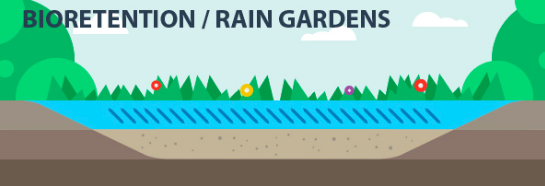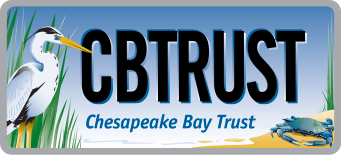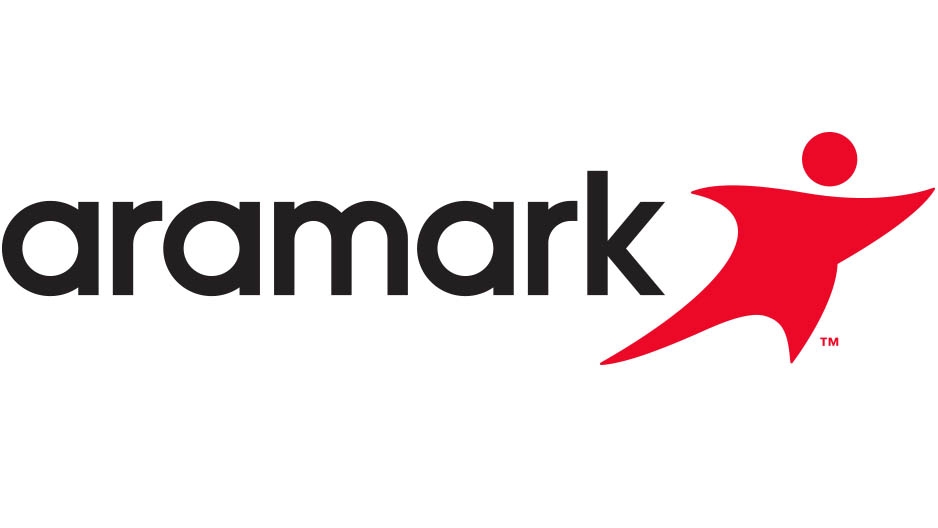The Frederick Food Security Network

Parts of the Chesapeake Bay watershed contain a high percentage of impervious cover – paved or other hard surfaces such as roofs and roadways that prevent rain water from being absorbed into the ground. Instead, water runs along these surfaces, collecting trash and substances such as motor oil, lawn fertilizers, and pesticides. This polluted stormwater flows into streams and rivers, where it threatens aquatic ecosystems and public health.
Effective stormwater management, on the other hand, creates safe paths for polluted runoff to be captured and filtered through the ground before it reaches waterways. This helps keep the environment clean and our communities healthy!

Project Location: Frederick, MD
Problem: Faculty and staff of the Hood College Center for Coastal and Watershed Studies wanted to address several local issues to help the surrounding community. Local water quality was being impacted by high levels of stormwater runoff, and some residents were facing food insecurity. With little to no grocery stores, parts of Frederick are classified as food deserts.
Solution: A Hood College faculty member researched rain gardens used in Australia that divert polluted rooftop runoff to irrigate raised garden beds. If used to grow produce, this unique design presented an opportunity to tackle both water pollution and food access in a single project. In 2017, four vegetable rain gardens were installed at a local homeless shelter based on the Australian model. As a new project, the gardens are currently being monitored in conjunction with the University of Maryland’s CONSERVE program. The soil is routinely tested, and captured rainfall is analyzed for bacteria and metals. As of mid-July, over 128 pounds of produce have been grown and distributed in the community. The Frederick Food Security Network regularly assists other community gardens and plans to further expand their network through grant funds from the Chesapeake Bay Trust and EPA.
Community Engagement: During the growing season community involvement runs strong, particularly with local churches and homeless shelter residents. Many users of the community garden gain a sense of ownership. The first growing season has so far produced over 100 volunteers with over 500 volunteer hours.
Project Type: Bioretention; Rain Garden
Scale: 4 vegetable gardens installed; 5 community garden sites; 500 gallons of stormwater runoff diverted per site during each rain event
Cost: Around $1,400 per vegetable rain garden bed
Funding Sources: Small, community-based grants: Chesapeake Bay Trust, Aramark Dining Services, Rotary Club of Carroll Creek; Green Streets, Green Jobs, Green Towns Grant (Chesapeake Bay Trust, EPA Region 3)
Partners: Student Homelessness Initiative Partnership (SHIP); The Religious Coalition for Emergency Human Needs; Housing Authority of Frederick; Second St. and Hope; Islamic Society of Frederick; Boys and Girls Club of Frederick County; Frederick Memorial Hospital; Community Action Agency Food Bank
More Info: http://ccws.hood.edu/ffsn/




